Power and progress
Livestream
Press
«Ich fürchte, das Jahr 2025 markiert den Wendepunkt zum Niedergang der USA» NZZ Interview von Albert Steck und Peter A. Fischer 8.2.2025 lesen
Wir überfordern die Demokratie NZZ Kommentar von Peter A. Fischer 3.2.2025 lesen
“Whoever controls Artificial General Intelligence, controls the world” UZH News 31.1.2025 read
«Entscheidungen von heute formen die KI der Zukunft» UZH News 31.1.2025 lesen
Better AI for shared prosperity
Artificial intelligence has lately been reshaping nearly every sector of the economy, raising profound questions about the future of work, wealth, and power. Will these advancements enhance the intelligence and performance of human beings, or will they deepen inequality and keep on establishing power among a privileged few? In his lecture at UZH, Nobel laureate Daron Acemoğlu highlights the necessity of implementing suitable AI regulations to benefit society.
Artificial intelligence has lately been reshaping nearly every sector of the economy, raising profound questions about the future of work, wealth, and power. Will these advancements enhance the intelligence and performance of human beings, or will they deepen inequality and keep on establishing power among a privileged few? In his lecture at UZH, Nobel laureate Daron Acemoğlu highlights the necessity of implementing suitable AI regulations to benefit society.
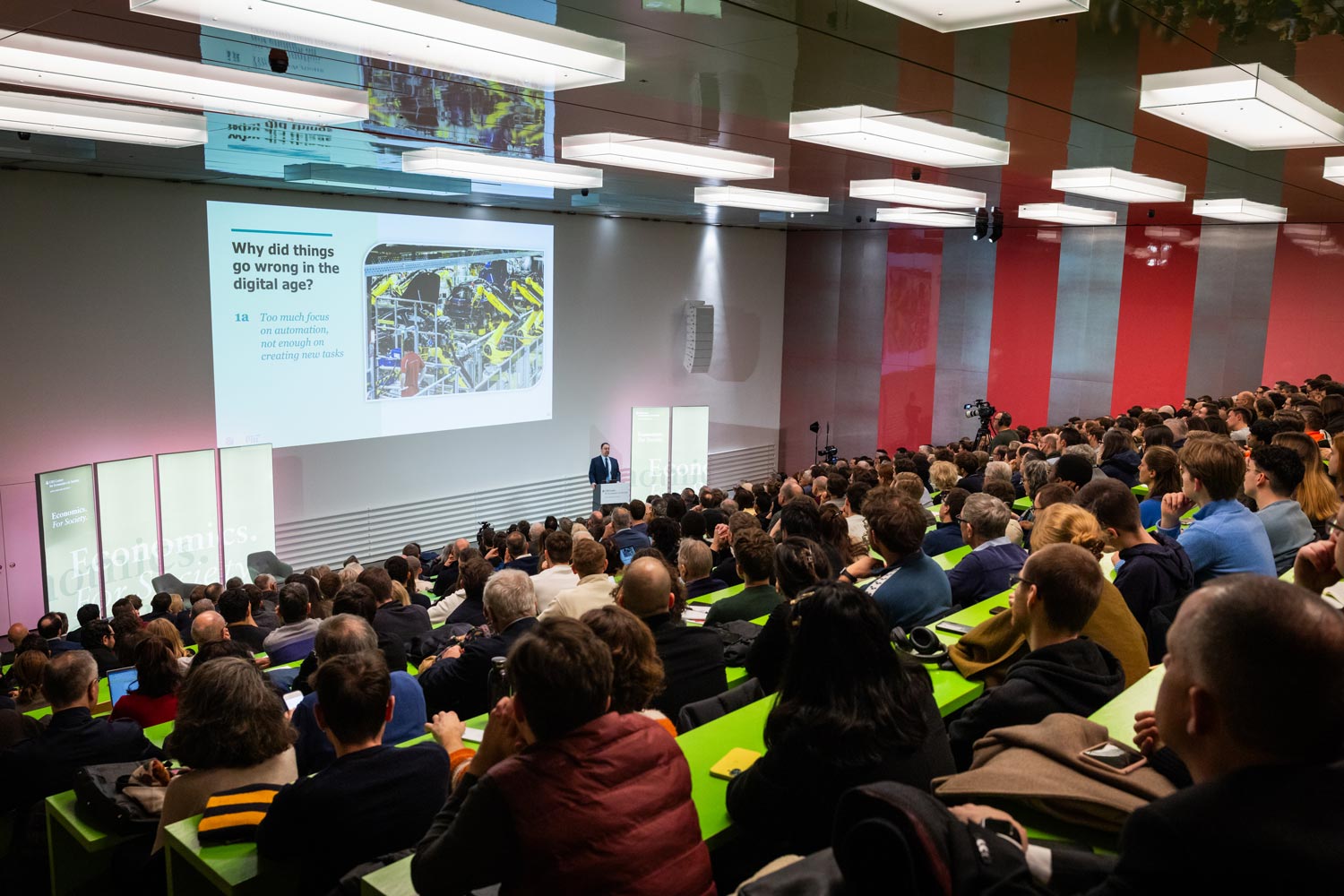
Gallery
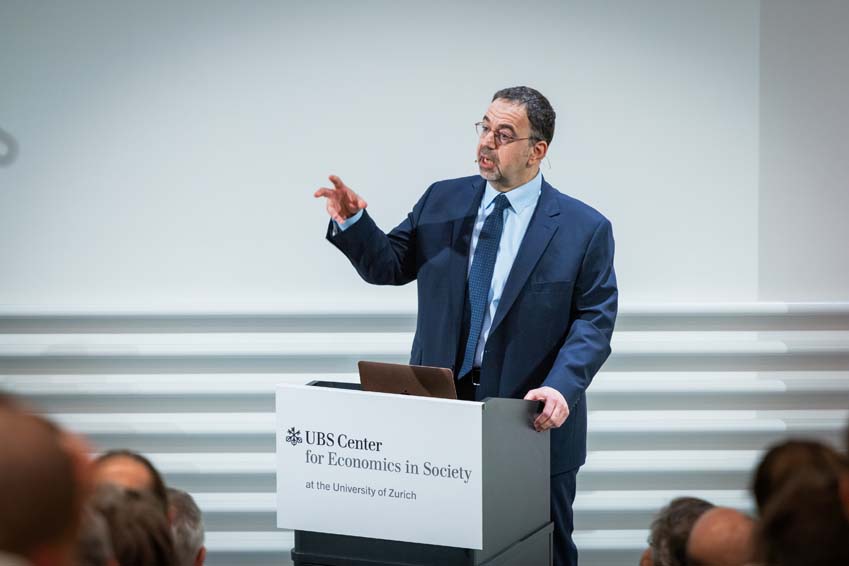
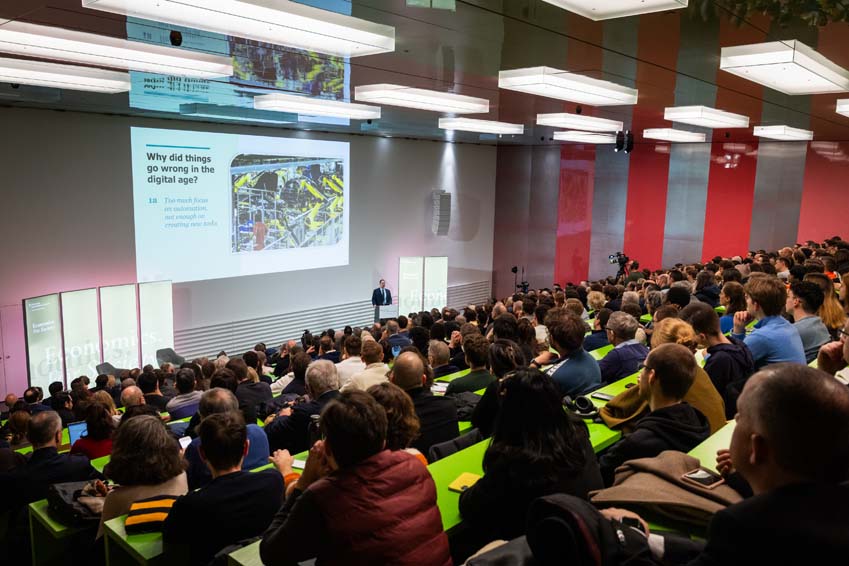
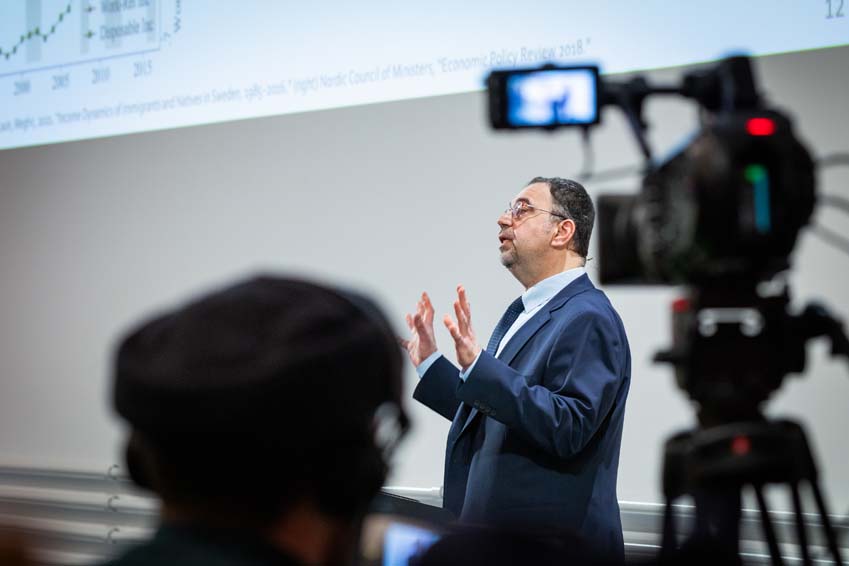
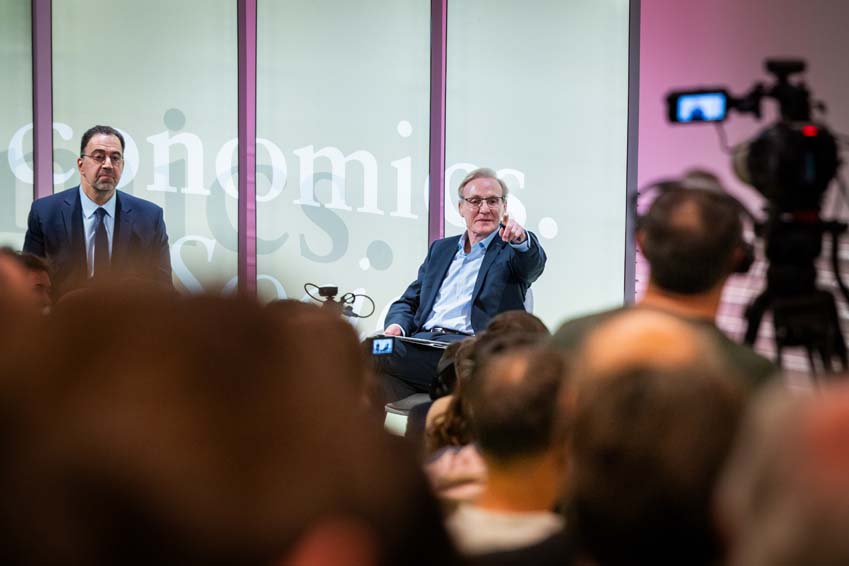


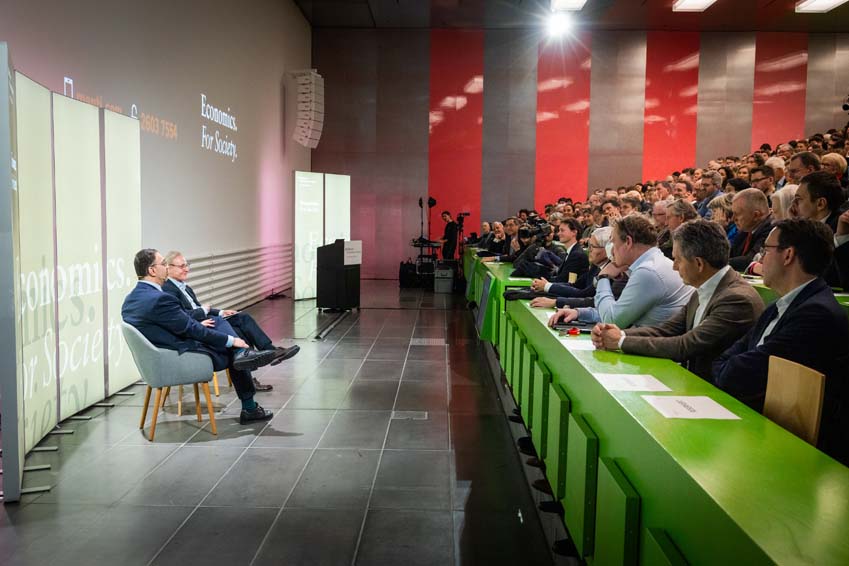
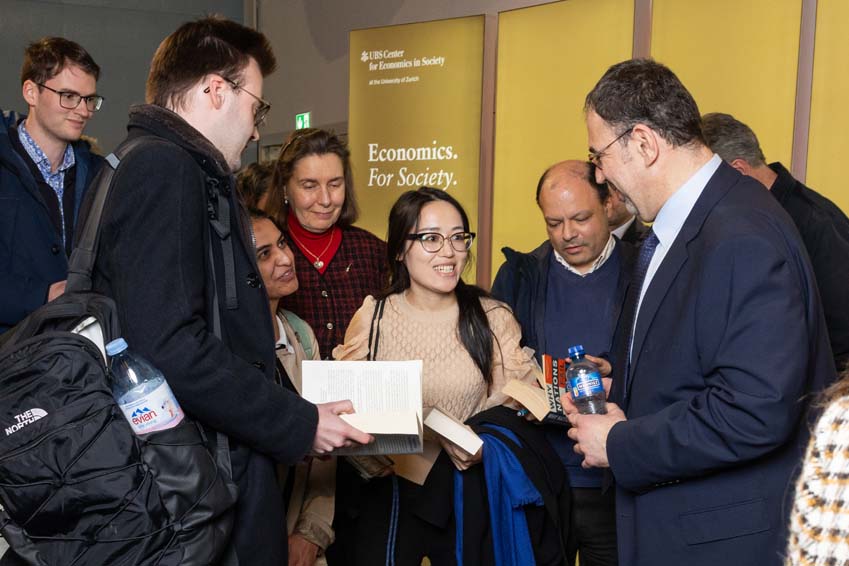
Outline
Daron Acemoğlu’s lecture delves into some of the most critical questions we face today: How will technological advancements, particularly in AI and automation, shape the future of our society? Will these innovations drive widespread prosperity, or will they deepen inequality and entrench power among a select few? Acemoğlu offers a unique perspective on these pressing issues. He argues that while technology holds immense transformative potential, its outcomes are not predetermined. The key question is: who will control this progress, and under what conditions will it unfold? At the heart of Acemoğlu’s vision is the belief that we can shape innovation to serve the broader public good. He shared his insights on how we, as a society, can navigate these challenges and create a future where technological progress benefits everyone.
Daron Acemoğlu’s lecture delves into some of the most critical questions we face today: How will technological advancements, particularly in AI and automation, shape the future of our society? Will these innovations drive widespread prosperity, or will they deepen inequality and entrench power among a select few? Acemoğlu offers a unique perspective on these pressing issues. He argues that while technology holds immense transformative potential, its outcomes are not predetermined. The key question is: who will control this progress, and under what conditions will it unfold? At the heart of Acemoğlu’s vision is the belief that we can shape innovation to serve the broader public good. He shared his insights on how we, as a society, can navigate these challenges and create a future where technological progress benefits everyone.
Speaker
Daron Acemoğlu is Elizabeth and James Killian Professor of Economics in the Department of Economics at the Massachusetts Institute of Technology and a member of the Economic Growth Program of the Canadian Institute of Advanced Research. His research covers a wide range of areas within economics, including political economy, economic development and growth, human capital theory, growth theory, innovation, search theory, network economics and learning. In the book "Why Nations Fail: The Origins of Power, Prosperity and Poverty" Daron Acemoğlu and James Robinson conclusively show that it is man-made political and economic institutions that underlie economic success (or the lack of it). Acemoğlu is the co-recipient of the 2024 Sveriges Riksbank Prize in Economic Sciences in Memory of Alfred Nobel for his groundbreaking work in institutional economics research.
Ernst Fehr promovierte 1986 an der Universität Wien. Seine Arbeit hat gezeigt, wie soziale Motive die Zusammenarbeit, Verhandlungen und Koordination zwischen Akteuren beeinflussen und wie sich dies auf das Funktionieren von Anreizen, Märkten und Organisationen auswirkt. Seine Arbeit identifiziert wichtige Bedingungen, unter denen die Zusammenarbeit floriert und zusammenbricht. Die Arbeit an den psychologischen Grundlagen von Anreizen informiert uns über die Vorzüge und Grenzen finanzieller Anreize für die Vergütung von Mitarbeitern. In anderen Arbeiten hat er die Bedeutung der Unternehmenskultur für die Leistung von Unternehmen gezeigt. In neueren Arbeiten zeigt er, wie sich soziale Motive darauf auswirken, wie Menschen über Fragen im Zusammenhang mit der Umverteilung von Einkommen abstimmen und wie Unterschiede in der inneren Geduld der Menschen mit der Ungleichheit des Wohlstands zusammenhängen. Seine Arbeit hat innerhalb und außerhalb der Wissenschaft mit mehr als 100.000 Zitaten von Google Scholar große Resonanz gefunden, und seine Arbeit wurde mehrfach in internationalen und nationalen Zeitungen erwähnt.
Daron Acemoğlu is Elizabeth and James Killian Professor of Economics in the Department of Economics at the Massachusetts Institute of Technology and a member of the Economic Growth Program of the Canadian Institute of Advanced Research. His research covers a wide range of areas within economics, including political economy, economic development and growth, human capital theory, growth theory, innovation, search theory, network economics and learning. In the book "Why Nations Fail: The Origins of Power, Prosperity and Poverty" Daron Acemoğlu and James Robinson conclusively show that it is man-made political and economic institutions that underlie economic success (or the lack of it). Acemoğlu is the co-recipient of the 2024 Sveriges Riksbank Prize in Economic Sciences in Memory of Alfred Nobel for his groundbreaking work in institutional economics research.
Ernst Fehr promovierte 1986 an der Universität Wien. Seine Arbeit hat gezeigt, wie soziale Motive die Zusammenarbeit, Verhandlungen und Koordination zwischen Akteuren beeinflussen und wie sich dies auf das Funktionieren von Anreizen, Märkten und Organisationen auswirkt. Seine Arbeit identifiziert wichtige Bedingungen, unter denen die Zusammenarbeit floriert und zusammenbricht. Die Arbeit an den psychologischen Grundlagen von Anreizen informiert uns über die Vorzüge und Grenzen finanzieller Anreize für die Vergütung von Mitarbeitern. In anderen Arbeiten hat er die Bedeutung der Unternehmenskultur für die Leistung von Unternehmen gezeigt. In neueren Arbeiten zeigt er, wie sich soziale Motive darauf auswirken, wie Menschen über Fragen im Zusammenhang mit der Umverteilung von Einkommen abstimmen und wie Unterschiede in der inneren Geduld der Menschen mit der Ungleichheit des Wohlstands zusammenhängen. Seine Arbeit hat innerhalb und außerhalb der Wissenschaft mit mehr als 100.000 Zitaten von Google Scholar große Resonanz gefunden, und seine Arbeit wurde mehrfach in internationalen und nationalen Zeitungen erwähnt.